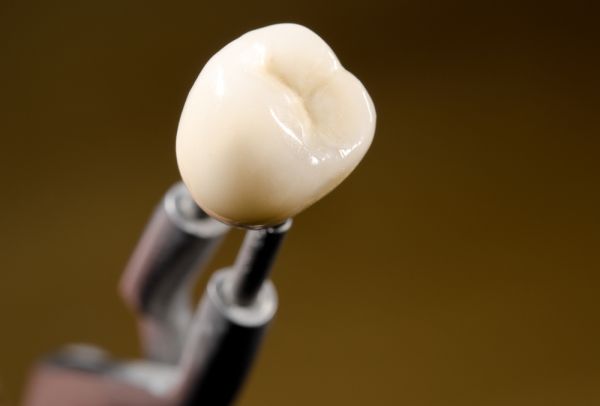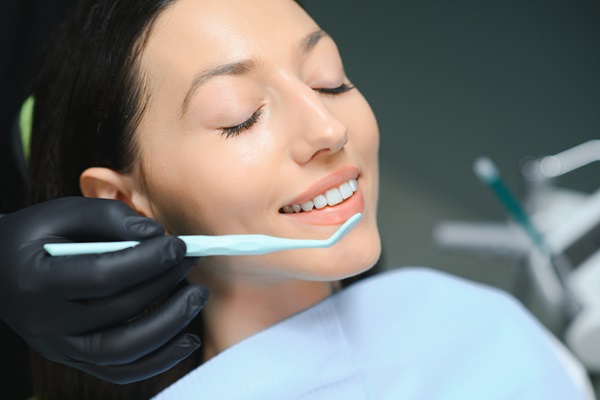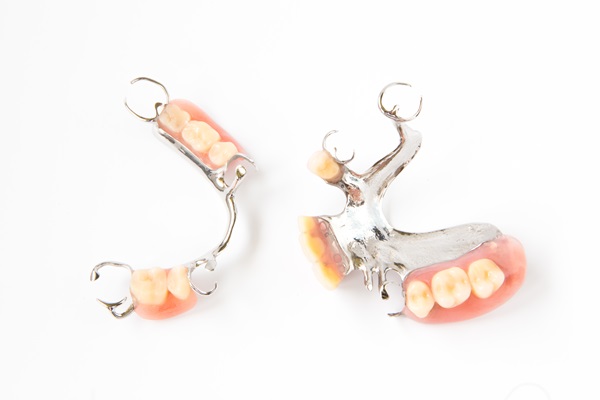How to Take Care of Crowns After Crown Placement on Implants

You have undergone a crown placement procedure, and you want your new restoration to last. Dental crowns typically last for 5-15 years, but you can increase the odds of keeping your restoration longer by caring for it properly. Caring for a crown is not difficult, and once you get into a routine, it will become second nature.
How to care for dental crowns after a crown placement
People should begin caring for dental crowns right after the crown placement. They must continue a proper care routine for the lifetime of the crown.
Right after the procedure
Many people experience sensitivity right after getting a crown placed. Patients should brush with sensitive toothpaste immediately following the procedure. Patients can switch to regular toothpaste after the sensitivity subsides.
Brushing and flossing
Brushing and flossing should be part of every oral hygiene routine, including when people have crowns. Pay special attention to the gum tissue surrounding the crown when brushing. Bacteria can get in between the implant and crown through the gums, so it is critical to remove these.
Dentists might recommend patients use fluoride-based toothpaste to care for crowns. This strengthens the enamel and makes the root less likely to decay. Dentists examine patients’ oral histories before recommending this type of toothpaste. Those who have a long history of dental decay or have gum disease are good candidates for fluoride-based toothpaste.
Patients should floss daily with dental floss made for implants. Those who have trouble properly using dental floss can use a waterpik.
Avoid foods that harm dental restorations
Sticky and sugary foods should be avoided after crown placement. Sticky foods attach to dental crowns and can cause them to fail. Sugary foods create a buildup of bacteria, making it easier for the tooth under the crown to decay. This can also cause the crown and implant to fail.
Wear a mouthguard
Dental crowns are durable, but these restorations can be damaged when people grind their teeth at night. People who have bruxism are encouraged to get a mouthguard fitted by the dentist. Wearing a mouthguard at night protects the dental crowns and the remaining teeth.
Go to the dentist every six months
Some people with a single restoration might only need to go to the dentist one time a year. Most people with implants and crowns need to go at least twice a year, though. The dentist can check for gum problems, signs of decay and issues with the restoration. Many problems can be fixed if caught quickly. Regular dental checkups allow dentists to find problems they turn into serious issues.
Take care of your crowns
You might experience some sensitivity right after getting your crown, so take special care and use a sensitive toothpaste if necessary. Then, you can switch to regular toothpaste and use dental floss made for implants. Avoid sticky and sugary foods and wear a mouthguard if you grind your teeth at night. Also, make sure to visit your dentist every six months. Your dentist will check your restorations and make sure there is not any damage.
Request an appointment here: https://sandimassedation.com or call San Dimas Family and Sedation Dentistry at (909) 305-2300 for an appointment in our San Dimas office.
Check out what others are saying about our services on Yelp: Read our Yelp reviews.
Recent Posts
Today, with increasing importance placed on dental aesthetics, there are many reasons why one may consider a trip to the cosmetic dentist. The desire for good-looking teeth is important as beautiful smiles are known to contribute to a person's overall well-being and positive self-image. There are many different avenues for fixing an imperfect smile. In…
An article by GlaxoSmithKline Consumer Healthcare states that more than 18 million people wear partial dentures. Anyone who has been considering getting partials to improve their speech, ability to chew, and even their appearance is not alone. It helps to have the proper information beforehand, though. Partials are created from a wide variety of materials, each…
Dental bridges offer a reliable and effective solution for replacing missing teeth. A missing tooth, whether caused by injury, decay, or other dental issues, can impact the health and appearance of your smile. Fortunately, dental bridges can help restore your oral health. Here are five benefits of choosing dental bridges as your tooth replacement option.Dental…
Individuals suffering from damaged or unsightly teeth may benefit from receiving dental crowns. This straightforward and relatively common procedure can help restore the look and function of healthy, natural teeth. While a variety of components may be used to form dental crowns based on the patient's individual preferences and needs, the installation process is usually…


